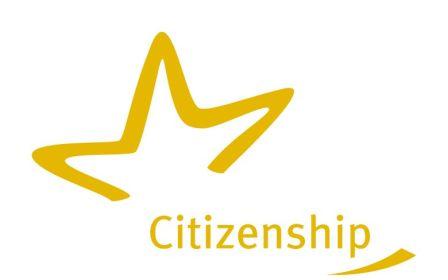Launched in 2007, the current programme Europe for citizens (Decision 1904/2006 EC of EP and Council) will end in 2013 in conjunction with the celebration of the European Year of Citizens proposed by the European Commission. Due to its success the European Commission has proposed to renew it for 2014-2020, and to allocate €50 million more than for the previous programme.
Active European citizens: The concept
 In times of economic crisis and general apathy towards politics (in particular in EU matters as proved by consistently low participation in EP elections, see e.g. the EP’s Eurobarometer pages), increasing citizens’ involvement in the decision-making process is a priority for the EU.
In times of economic crisis and general apathy towards politics (in particular in EU matters as proved by consistently low participation in EP elections, see e.g. the EP’s Eurobarometer pages), increasing citizens’ involvement in the decision-making process is a priority for the EU.
The renewed programme Europe for citizens 2014-2020 goes in this direction: strengthening remembrance and enhance capacity for civic participation at the Union level. More concretely, the programme’s aim is to assist and give economic support to those organisations engaged in local and European citizens’ initiatives. Furthermore, the Commission aims to foster active citizenship among people, together with a sense of belonging to the European community.
Associations, local authorities and institutions promoting active European citizenship in all 27 Member States can apply for the grants offered by the programme. FYR of Macedonia, Albania and Croatia also participate in the programme and can submit their application to EACEA (Education, Audiovisual and Culture Executive Agency).
Results from the programme 2007-2013
Generally, the programme has achieved positive responses from stakeholders and good results in terms of participation. A positive impact on citizens’ perception of Europe has been recorded as a consequence of their engagement in the programme. 82% of respondents felt more solidarity with fellow Europeans after participating in the programme, 75% claim to feel more European and 71% claim to feel more part of the European Union
Implementation of the programme 2014-2020
After consultations with stakeholders in September 2011, the Commission decided to strengthen the programme’s priorities by adopting a more incisive annual work plan which contains: detailed objectives and expected results, method of implementation and a financing plan. These annual programmes will also provide a description of the actions to be financed and an indication of the amount allocated to each action. Moreover, mid-term evaluations and reporting will be carried out during the programme.
The consultation process
On 29 May, the EP’s CULT committee discussed the proposal for the 2014-2020 programme. Discussion focused on the Treaty article which serves as basis for the proposal. Following advice from the EP’s Legal Service and the JURI committee it is very likely that the CULT committee will reject the proposal as the EP cannot accept the proposed legal basis. It seems very likely that this dossier will turn into a significant inter-institutional dispute, with considerable procedural implications.








Be the first to write a comment.